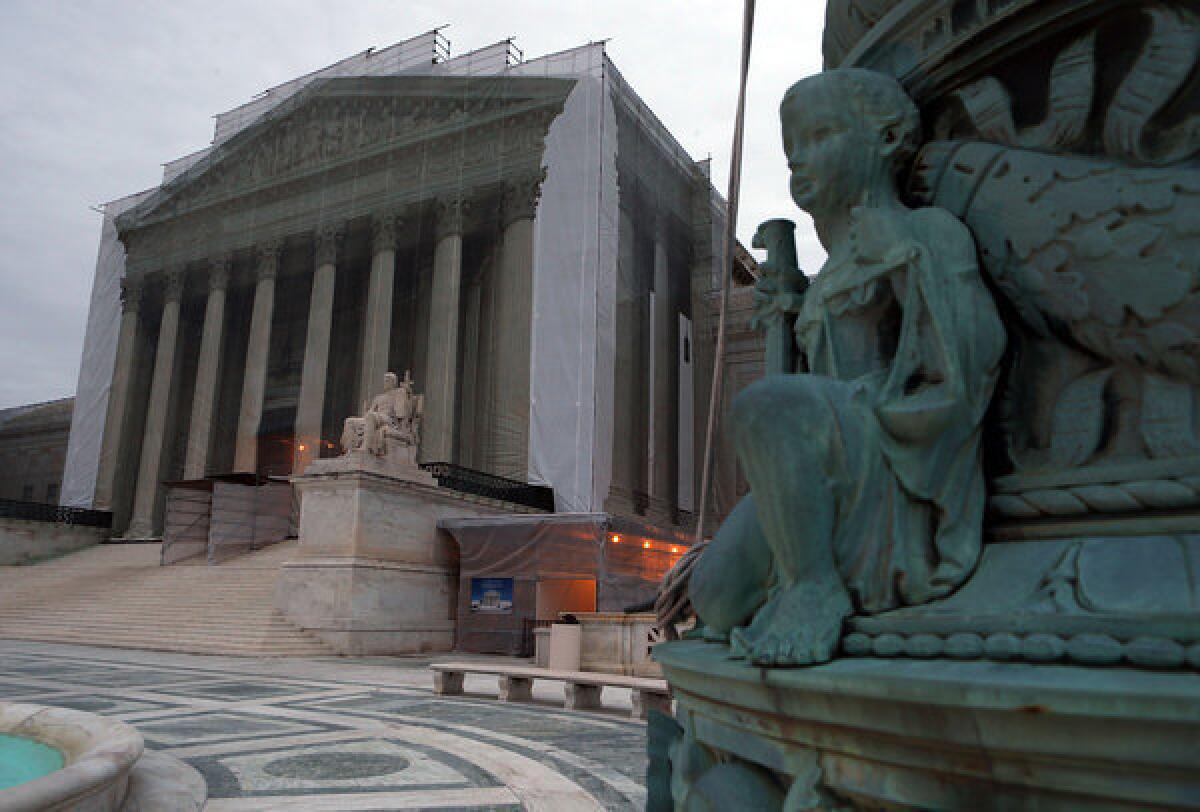Supreme Court allows police to take DNA from criminal suspects

WASHINGTON -- The police may take a DNA sample from people arrested for serious crimes, the Supreme Court ruled Monday in a major victory for law enforcement and crime victims.
The 5-4 decision is likely to make the taking of DNA samples as common as taking fingerprints or a photograph when people are arrested.
More than half of the states now require a DNA mouth swab when persons are charged with a serious crime, and many of the others were awaiting a Supreme Court ruling on the constitutionality of the practice.
The FBI’s national database has more than 11 million DNA samples on file, and that number is likely to grow sharply in the years ahead.
The high court said DNA has an “unparalleled ability both to exonerate the wrongly convicted and to identify the guilty,” and that taking a mouth swab from an arrestee was not an “unreasonable search.”
“When officers make an arrest supported by probable cause to hold for a serious offense and they bring the suspect to the station to be detained in custody, taking and analyzing a cheek swab of the arrestee’s DNA is, like fingerprinting and photographing, a legitimate police booking procedure that is reasonable under the Fourth Amendment,” said Justice Anthony M. Kennedy for the court. Chief Justice John Roberts and Justices Clarence Thomas, Stephen G. Breyer and Samuel A. Alito were included in the majority.
The decision in the case of Maryland vs. King upheld the rape conviction of Alonzo King. When he was arrested for an alleged assault, his DNA sample identified him as the perpetrator of an unsolved rape.
Justice Antonin Scalia spoke for the dissenters, saying the 4th Amendment did not permit searching persons for other crimes they may have committed. Justices Ruth Bader Ginsburg, Sonia Sotomayor and Elena Kagan agreed with him.
Follow Politics Now on Twitter and Facebook
More to Read
Get the L.A. Times Politics newsletter
Deeply reported insights into legislation, politics and policy from Sacramento, Washington and beyond. In your inbox three times per week.
You may occasionally receive promotional content from the Los Angeles Times.







